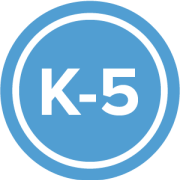
The Constitution EXPLAINED video series provides easily understandable context and connections to students’ lives. Engage your Spanish-speaking and EL/ML students with Spanish videos and deepen learning with accompanying Bilingual Teacher Guides.

Introduce your classroom to civic engagement and challenge your students to solve familiar problems in a fictional community with our new game, Neighborhood Good.

Turn your classroom into the Supreme Court and bring civics to life through media-rich, whole-class, collaborative experiences. Your students will take on the role of Petitioner, Respondent, or Justice, review landmark decisions, and decide fictional cases.

Well Versed is a new animated music video series from Nickelodeon and ATTN: that explores civic topics for elementary students and preschoolers with viewing guides from iCivics.






















